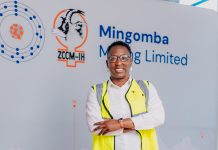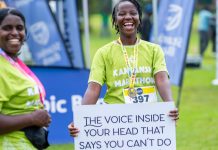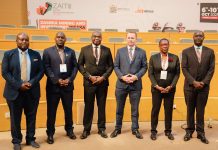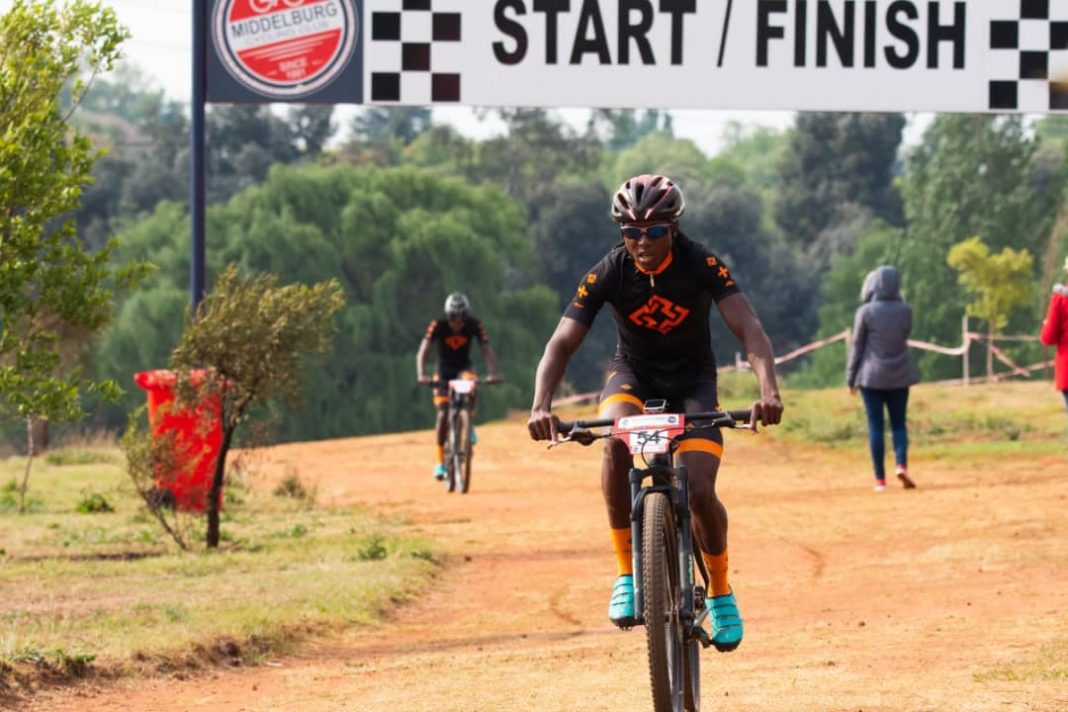“W
hen you think about sport and recreation in Zambia, cycling probably isn’t the first activity that comes to mind. Back in 2014 when Kansanshi Mining Plc – one of two Zambian operations run by First Quantum Minerals (FQM) – set out to create and sponsor a team of cyclists as part of its brand new Kansanshi Sports Foundation, the verdict was certainly out on whether or not the sport would catch on. Fast-forward to 2021, and the cycling team is appearing on podiums in Zambia and beyond, and several very promising athletes are being put through world-class professional development programmes.
But there’s more to the mining company’s commitment to promoting cycling than meets the eye. Mining For Zambia takes a closer look at the Kansanshi Sports Foundation’s goals, and its hopes for Zambia’s future.
From grassroots to glory: kickstarting the cycle
The Kansanshi Sports Foundation was set up in 2014 by FQM’s Kansanshi Mining Plc, as part of the miner’s broader goal of supporting and enriching the communities in and around its operations in Solwezi. It gives youth the opportunity to pursue sports in the absence of official programmes in Zambian schools.
Cycling was the very first sport the foundation started developing. Zambian Ryan Ellis, a pro cyclist who heads up the Kansanshi Sports Foundation, shares one of its philosophies: “There tends to be a cycle in sports development. If you start with grassroots development – helping people to get into the sport, and providing a framework for them to compete – then you tend to see the growth of the sport as a form of recreation, which has the positive effect of improving health and fitness. And then, once the sport takes hold as a form of recreation, you intrinsically start to see some star performers who go on and perform at an elite level and become role models – and, ultimately inspire and contribute to the growth of the sport again, at the grassroots level. Kansanshi Sports Foundation is trying to kickstart that cycle.”
The Foundation currently has rowing, volleyball, netball, football, swimming and athletics programmes and, according to Ellis, they’re starting to see the aforementioned cycle in motion (pun intended) with the very first sport they set out to support: cycling.
Milestones in Zambia and beyond
Kansanshi Cycling Team triumphed in October this year, with double wins in the Zambia national championships, both in the 120km road race event and the 25km time trial – as well as in the male and female categories, no less.
But, according to the team’s coaches, the highlight of the racing calendar this year was Kansanshi’s Junior Cycling Team’s two-week South African tour – also held in October – during which the young riders competed beyond Zambia’s borders for the first time, and showed our neighbours what they’re made of.
Kansanshi’s Davies Kawemba competed in an inter-provincial cup race featuring top junior cyclists from South African provinces Gauteng, Limpopo, and Mpumalanga, and came away with a dominant win in the Under 19 category. In the Under 16 category, Kansanshi’s Gift Puteho finished in second place, saying, “We all learned a bit from this weekend’s experience. The racing in South Africa is a bit different from what we do at home in Solwezi, and given a few more weeks to adapt, I’m sure we’ll perform even better at the finals.”
Indeed, the team did not disappoint, with Gift Puteho holding his own in a very tight race with South African Luan Botha but, after a minor crash on the last lap, eventually coming in second in the final. Teammate Ernest Mazabuka won the crowd over when, after two punctures forced him to run three kilometres to the technical zone and pushed him back into position 15, he still managed to pedal his way to fifth place.
Davies Kawemba rode easily off the front of the race and never looked back, achieving the first ever win in a South African race for the Solwezi-based team, raising the bar for aspiring cyclists in Zambia, and marking an important milestone in the team’s development.
“This was my first South African race, so I wasn’t very sure what to expect,” said Kawemba, modestly. “Now I know where I stand with the juniors, my next goal is to tackle the professional ranks.”

The bigger picture
Developing athletes in sports like cycling is part of a much bigger picture, for FQM. While one of the Foundation’s goals is fostering enthusiasm for healthy activities, Ellis also describes a virtuous cycle when it comes to sponsorship. “Ideally, when you complete the cycle I described [from a sport’s growth at the grassroots level, to becoming popular recreationally, to nurturing elites who become role models, before growing again at the grassroots level], then the sport begins to feed on itself, generate its own interest and funding from other sponsors and, ultimately, sustain itself.”
“The Kansanshi Cycling Team is currently co-sponsored by Titan Drilling and BME, but founding sponsor, FQM, emphasises the need to plan for the day when Zambia’s economy is no longer mining-driven.”
The Kansanshi Cycling Team is currently co-sponsored by Titan Drilling and BME, but founding sponsor, FQM, emphasises the need to plan for the day when Zambia’s economy is no longer mining-driven. Considering what the future will look like when mines eventually close after life-of-mine is reached may, at first glance, seem like a topic without much relevance to sport and recreation. But, if one takes a careful look at how many lives and livelihoods mining reaches in Zambia, it is clear that these positive impacts extend widely enough to necessitate safeguarding them for the future.
According to Ellis, this is where the Foundation’s emphasis on providing athletes with a versatile range of educational opportunities comes in. “Our focus on education – and diversity of education – is core to what we do,” he explains.
The typical ‘journey’ for Kansanshi Sport Foundation’s athletes looks like this:
- Talent is identified through schools the miner supports, at events, or through tryouts.
- Athletes join a team and their high school education is funded.
- If an athlete attracts the attention of a professional team, they embark on a sporting career. Ellis and his colleagues are keenly aware, however, that only around one in a thousand talented athletes are likely to go down this path. One of Kansanshi’s cyclists did join a professional team in South Africa in 2018 but, after a year, opted to come back to Kansanshi.
- If an athlete is not ‘pro material’, the Foundation guides them through university, or helps them to develop a trade-based career. Two of the team’s twenty cyclists are currently studying chemical engineering, and plan to pursue careers in the mining industry. Career guidance is offered every step of the way.
“We’re trying to equip individuals and sporting clubs to support themselves in a future with or without mining,” says Ellis. “We have one athlete, for instance, who’s just qualified as a personal trainer, so he can work anywhere in or out of Zambia, irrespective of whether there are mines operating. That’s also why – with each of our sports – we try to create a sustainable model that, over time, needn’t depend so much on sponsorship funding. What’s happening now, to an extent, is that the cycling team is becoming prominent enough that, even if FQM closed up tomorrow, the team would quite easily attract sponsorship from another major corporate by offering a legitimate value proposition.”
Mentorship and its multiplier effects
Just as economic multiplier effects can begin with something as small as the smallest business and have far-reaching effects, so the positive reverberations from a sustainable network of mentors and mentees can change a culture for generations to come.
“The athletes who come through our programmes become great professionals in their field,” says Ellis. “By pairing sport with education and mentorship, we hope to enable the Foundation to contribute positively to society and the economy. Whatever it is that people choose to become, when they’ve been guided and mentored closely for a number of years, their contributions are probably going to be positive.”
It may or may not come as a surprise that, for Gift Puteho, cycling itself is not number one on his list of lessons learned so far. “The most important thing I’ve learned from being on the team is how to have patience, understand how to work with other people, and become capable of doing jobs that you’ve never done before. Because, as Kansanshi Cycling Team, we work as a team, and that has changed my life.”
See also: The businesspeople of North-Western’s future























